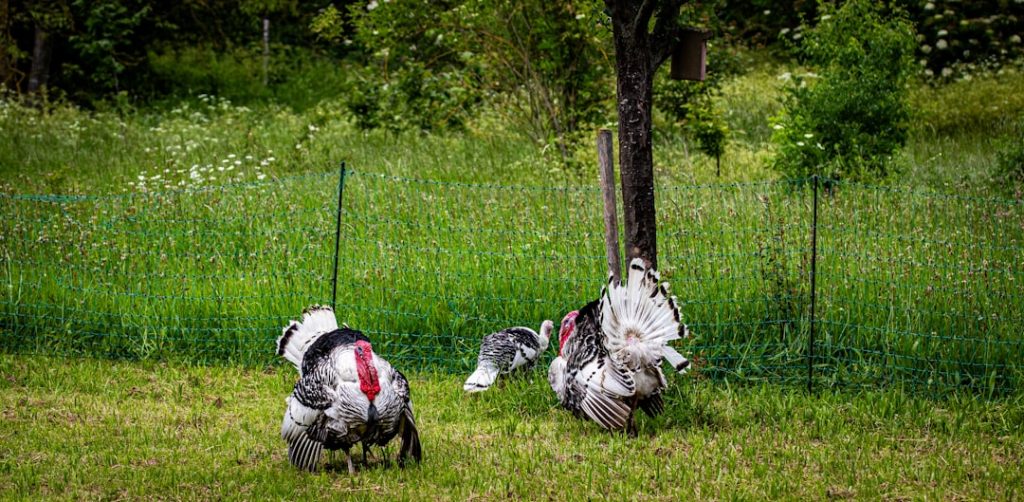Understanding local regulations is essential for business owners, particularly those in the hospitality sector. Regulations can differ significantly between municipalities, making it imperative to be knowledgeable about the specific rules and requirements applicable to your establishment. This includes comprehending zoning laws, health and safety standards, noise and nuisance ordinances, and the necessary permits and licenses for legal operation.
Business owners should thoroughly research and familiarize themselves with the local regulations pertinent to their specific type of enterprise. This process may involve consulting with local government officials, zoning boards, health departments, and other relevant authorities to ensure compliance with all applicable laws and regulations. It is crucial to note that ignorance of the law does not exempt one from responsibility.
Therefore, it is vital to invest time in understanding and adhering to all local regulations to avoid potential fines, penalties, or even business closure.
Table of Contents
- 1 Zoning laws and restrictions
- 2 Health and safety considerations
- 3 Noise and nuisance ordinances
- 4 Permits and licenses
- 5 Penalties for non-compliance
- 6 Resources for further information
- 7 FAQs
- 7.1 What are the legal regulations for keeping chickens in a garden?
- 7.2 Is it illegal to keep chickens in a garden in urban areas?
- 7.3 What are the potential consequences of keeping chickens illegally in a garden?
- 7.4 Are there any permits required for keeping chickens in a garden?
- 7.5 What steps should be taken to legally keep chickens in a garden?
Key Takeaways
- Local regulations vary by location and it is important to understand and comply with them when starting a business.
- Zoning laws and restrictions dictate where certain types of businesses can operate and what activities are allowed in specific areas.
- Health and safety considerations are crucial for businesses to ensure the well-being of employees and customers.
- Noise and nuisance ordinances regulate the level of noise and other disturbances that businesses can create in their surroundings.
- Permits and licenses are required for certain types of businesses and activities, and it is important to obtain them to operate legally.
- Non-compliance with local regulations can result in penalties, fines, or even closure of the business.
- There are resources available for further information on local regulations, zoning laws, health and safety guidelines, and obtaining permits and licenses.
Zoning laws and restrictions
Compliance with Zoning Laws
Zoning laws play a crucial role in the success of any hospitality business. These laws dictate how a particular area of land can be used, including whether it can be used for commercial purposes such as restaurants, bars, or hotels. It is essential to understand the zoning laws in your area to ensure that your business is located in a zone that allows for your type of establishment.
Zoning Restrictions and Regulations
Zoning laws can also impose various restrictions on your business, including building height, parking requirements, signage regulations, and more. Being aware of these restrictions is vital when planning and operating your business to avoid potential conflicts with local authorities. In some cases, you may need to apply for a variance or special permit to operate your business in a zone that has specific restrictions.
Avoiding Legal Issues and Ensuring Success
Understanding and complying with zoning laws is crucial to avoid potential legal issues and ensure the long-term success of your hospitality business. By doing so, you can avoid costly fines, penalties, and even business closure. It is essential to research and understand the zoning laws in your area before starting your business to ensure a smooth and successful operation.
Health and safety considerations

Health and safety considerations are paramount in the hospitality industry. It’s important to comply with all local health codes and regulations to ensure the safety of your customers and employees. This includes maintaining a clean and sanitary environment, proper food handling and storage practices, as well as compliance with fire safety regulations.
Health inspections are a common occurrence in the hospitality industry, and it’s important to be prepared for these inspections by maintaining high standards of cleanliness and safety at all times. Failure to comply with health and safety regulations can result in fines, closure of your business, or even legal action in severe cases. It’s essential to prioritize health and safety considerations in your hospitality business to protect the well-being of everyone involved.
Noise and nuisance ordinances
Noise and nuisance ordinances are another important consideration for hospitality businesses, especially those that operate late into the night. Many cities have specific noise ordinances that dictate acceptable noise levels during certain hours of the day. It’s important to be aware of these ordinances and take steps to minimize noise disturbances for nearby residents.
In addition to noise ordinances, nuisance ordinances may also apply to hospitality businesses. This can include regulations related to outdoor seating areas, smoking areas, or other activities that may create a nuisance for neighboring properties. It’s important to be mindful of these ordinances and take steps to mitigate any potential nuisances to avoid conflicts with local authorities.
Permits and licenses
Permits and licenses are a critical aspect of operating a hospitality business. Depending on the type of establishment, you may need various permits and licenses to operate legally. This can include a business license, food service permit, liquor license, entertainment permit, and more.
It’s important to research and understand the specific permits and licenses that are required for your type of business in your area. Failure to obtain the necessary permits and licenses can result in fines, closure of your business, or even legal action. It’s essential to ensure that you have all the required permits and licenses in place before opening your hospitality business to avoid potential legal issues.
Penalties for non-compliance

Consequences of Non-Compliance
Penalties for non-compliance with local regulations can vary depending on the severity of the violation and the specific laws that were violated. In some cases, non-compliance may result in fines, which can range from a few hundred dollars to several thousand dollars depending on the nature of the violation. In severe cases, non-compliance can result in closure of your business or legal action by local authorities.
Importance of Addressing Non-Compliance
It’s important to take non-compliance seriously and take steps to rectify any violations as soon as possible. This may involve working with local authorities to address any issues and come into compliance with all applicable regulations.
Risks of Ignoring Non-Compliance
Ignoring non-compliance can lead to escalating penalties and potential legal action, so it’s essential to address any violations promptly.
Resources for further information
There are many resources available for further information on local regulations for hospitality businesses. This may include consulting with local government officials, zoning boards, health departments, or other relevant authorities for specific information related to your type of establishment. Additionally, there are often industry-specific resources such as trade associations or legal professionals who can provide guidance on navigating local regulations.
It’s important to take advantage of these resources to ensure that you have a thorough understanding of all applicable regulations for your hospitality business. Staying informed and proactive in complying with local regulations is essential for the long-term success of your establishment. By taking the time to research and understand local regulations, you can avoid potential legal issues and focus on providing a safe and enjoyable experience for your customers.
If you’re considering keeping chickens in your garden, you may also be interested in turning a shed into a chicken coop. This article from Poultry Wizard provides helpful tips and advice on how to convert a shed into a suitable living space for your feathered friends. Learn more about turning a shed into a chicken coop here.
FAQs
What are the legal regulations for keeping chickens in a garden?
In many areas, there are local regulations and zoning laws that dictate whether or not you can keep chickens in your garden. These regulations may include restrictions on the number of chickens allowed, coop requirements, and distance from neighboring properties.
Is it illegal to keep chickens in a garden in urban areas?
In some urban areas, keeping chickens in a garden may be prohibited due to zoning laws and restrictions on livestock within city limits. It is important to check with local authorities to determine the legality of keeping chickens in your specific area.
What are the potential consequences of keeping chickens illegally in a garden?
If you keep chickens in your garden in violation of local regulations, you may face fines, legal action, and the requirement to remove the chickens from your property. It is important to be aware of and comply with the laws and regulations regarding keeping chickens in your area.
Are there any permits required for keeping chickens in a garden?
Some areas may require permits for keeping chickens in a garden, especially in urban or suburban settings. These permits may have specific requirements for coop construction, waste management, and noise control.
What steps should be taken to legally keep chickens in a garden?
To legally keep chickens in your garden, it is important to research and understand the local regulations and zoning laws. Obtain any necessary permits, adhere to coop and care requirements, and be considerate of neighbors to ensure compliance with the law.
Meet Walter, the feathered-friend fanatic of Florida! Nestled in the sunshine state, Walter struts through life with his feathered companions, clucking his way to happiness. With a coop that’s fancier than a five-star hotel, he’s the Don Juan of the chicken world. When he’s not teaching his hens to do the cha-cha, you’ll find him in a heated debate with his prized rooster, Sir Clucks-a-Lot. Walter’s poultry passion is no yolk; he’s the sunny-side-up guy you never knew you needed in your flock of friends!







